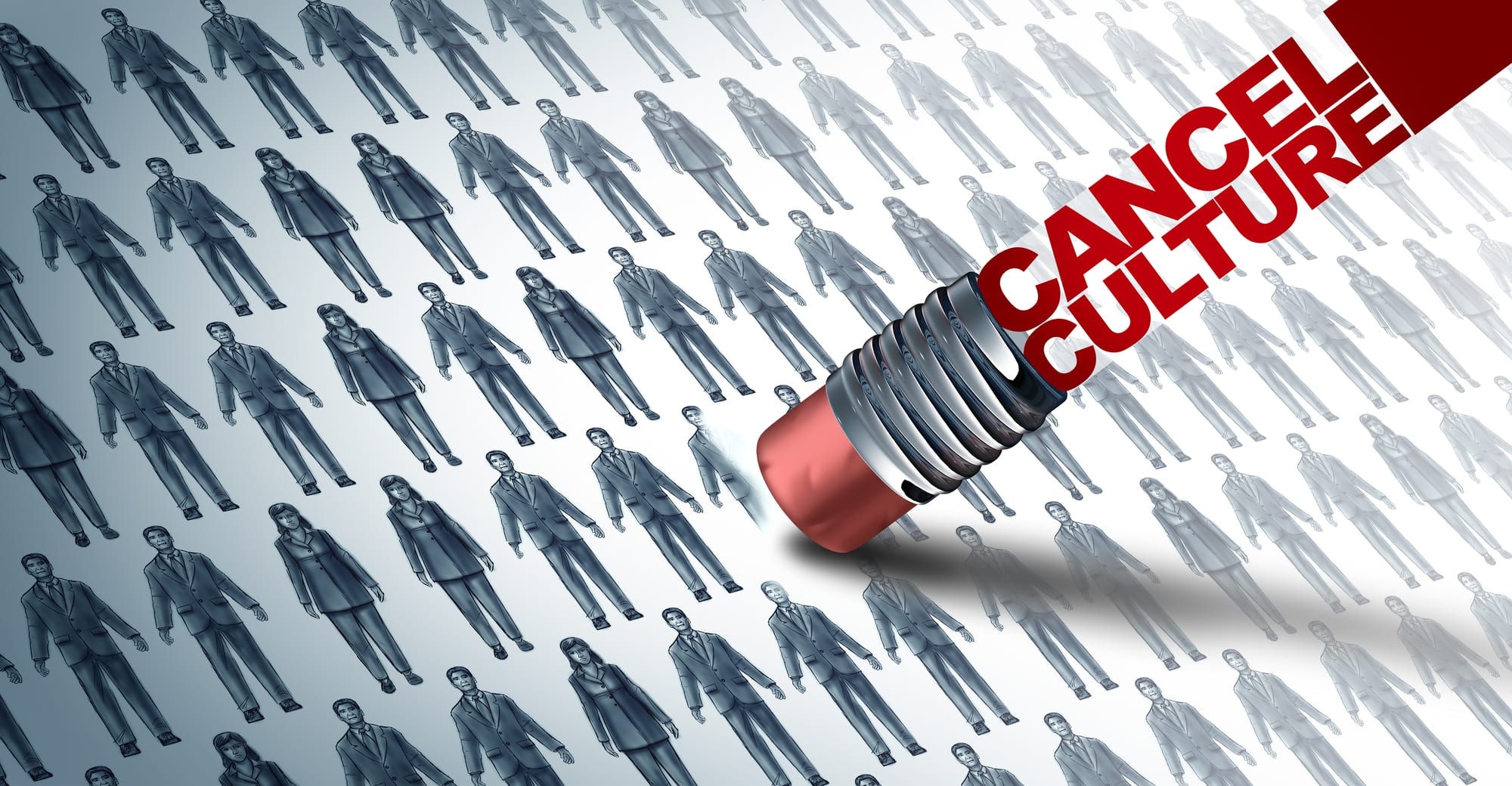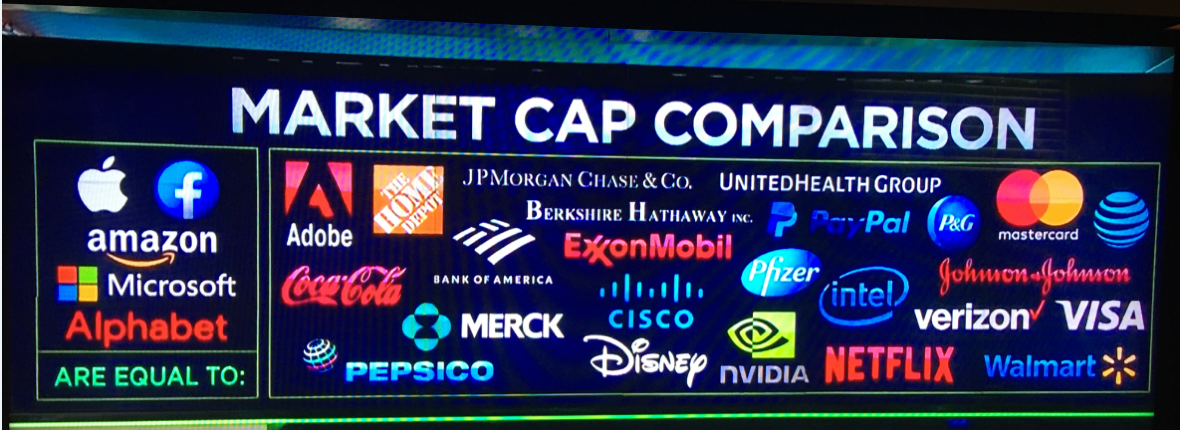Big Tech – Simple Service Providers or Social Policy Makers?
A British historian is credited with first uttering this timeless observation:
“Power tends to corrupt….and absolute power corrupts absolutely.”
We are seeing this play out before our eyes today.
Google is dipping its toes in the muddy waters of censorship. In response, the only power great enough to bring them back into line, the power and might of the US government, is being brought to bear on their morally misaligned corporate overreach.
Their equally large cohorts are quick understudies. No matter how big and powerful you think you are, you don’t want to kick the real sleeping giant: Uncle Sam. Zuckerberg at Facebook didn’t need but a New York minute to figure that one out.
Here’s a quote from an article last month that summarizes Facebook’s rather timely “about Face” change of heart on how it views the issue of censorship:
“I just believe strongly that Facebook shouldn’t be the arbiter of truth of everything that people say online,” Zuckerberg told Fox News. “Private companies probably shouldn’t be, especially these platform companies, shouldn’t be in the position of doing that.”
To read more, follow this link:
https://www.theguardian.com/technology/2020/may/28/zuckerberg-facebook-police-online-speech-trump
(*Ivan here. Let’s not forget Twitter’s battle with Trump, whereby, via USA Today, “the social media company appears to be pivoting toward a more proactive editorial stance with moves this week to fact-check President Donald Trump’s tweets and to flag another one for violating its standards against glorifying violence. Here at Equedia, some of our posts on social media platforms are blocked because of how radical they appear – ironically, for example, when we predicted a few years ago that there will be protests and riots.)
Apple is still trying to play a “losing hand” by refusing to cooperate with US government investigative authorities when it comes to “unlocking” Apple iPhones. Suspected terrorists and other threats are often the targets of government investigations.
So far, Apple has taken the view that their customers rely on security and privacy when their devices are used.
In response, the Department of Justice is actively calling for changes in legislation to allow the creation of a backdoor, – one that is reserved for government use in cases where national security may be at risk.
Ironically, an unintended consequence of the previous administration’s lies and deceit with their submissions to the Foreign Intelligence Surveillance Court (FISA) makes this a more difficult task for lawmakers.
Nonetheless, government patience is running a bit thin:
Not to be outdone, Amazon is still trying to outmuscle Microsoft in securing a $10 billion government contract for cloud computing services. The two tech companies were the only bidders after several other companies fell out of the bidding process.
Do you notice a common theme throughout the discussion of these “biggest of the rest” technology companies? I sure do.
My editor, Ivan Lo, likes to say, “Follow the facts, make the connections, see where it leads, and what it is telling you.” This article demonstrates that very point.
Lets “circle the wagons” and see what’s at stake.
First and foremost, a common theme running through the discussion of the various super large tech companies is their legal challenge with the government itself.
Is this ringing any bells?
Just take a moment to reflect on how many times you have heard President Trump ever so proudly proclaim his progress on the vast number of judicial appointments that are occurring during his watch. Now you can fully appreciate his unfailing effort to fill the courts with judges who appreciate and respect conservative values.
When you think about it, all of these companies have more than enough financial resources to “tie the government up in court” for as long as it takes for the government to change. This is why the next US Federal election is so important; another four years of power and the resulting power to effect change is “front of mind” for these tech company leaders. A 2 or 3-year court battle is one thing; keeping it going for years beyond that is another.
The upcoming election is about privacy, surveillance, and national security. Make no mistake about it.
Second, “It’s all about the “Benjamins.”
Power usually revolves around money. This time is no different. There is a tremendous advantage of having government support. Some of the “left-leaning” tech giant leaders have become confused. It is alright to sport a social conscience, but let’s face it: it is not the private sector’s job to set social policy.
That task is left to the electorate, their elected politicians who make the laws, the judiciary who administer whatever is defined as “just” at any given time in history and, of course, by the police who have the duty of enforcement. This is the system of government that has “made America Great” and will “make America Great Again.” That much we can all agree.
All of these other forms of protest are merely distractions when it comes to understanding what the system is and how it works.
Tech companies have been granted special accommodations under the law that protects them from being attacked through the courts. These special rights enabled them to flourish and prosper.
Now, because of their recent actions, this special status is being reconsidered, and there is talk about its potential revocation.
The Washington Post described the current situation this way:
“The Justice Department has been exploring Section 230 as part of a wide-ranging probe of Facebook, Google, and other companies, an inquiry that’s also studied whether those firms have become too big, powerful and anti-competitive. Justice officials have signaled they plan to put forward recommendations — and potentially bring individual cases against companies — before the end of the year.”
See link to read more.
Finally, notice that the dates of the various links provided in this article are all current.
This is the “perfect storm” for change.
Powerful forces in the private sector are taking positions that they may come to regret later, depending on the outcome of the US Federal election in November. In the meantime, they are coming under the scrutiny of various government agencies that still have power over them.
Summary
The various “Tech Titans” remind me of the old telecommunications company, AT&T, a regulated monopoly that was broken up in 1984. However, fast-changing technology neutered the intended effect of the break-up as cellular and voice over internet protocol (IP telephony) replaced landlines.
The “Tech Titans” have consolidated their power and are now in a position to influence different outcomes, including how information is both received and used.
This puts them in a vulnerable position.
With great power comes the need for great restraint. So far, it doesn’t look like the tech companies want to adopt and mandate “neutrality.” One way or another, it sure looks like privacy, surveillance, and security will become hot election topics.
-John Top














